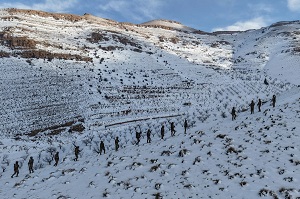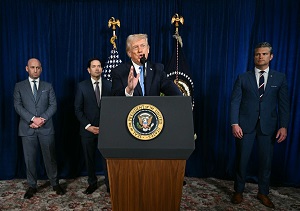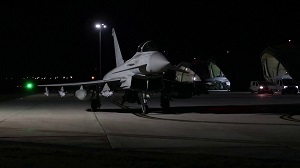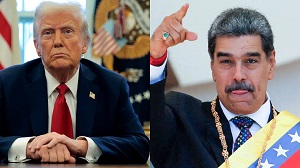Two Years Apart… Two Decades Apart - By Hazem Saghieh, Asharq Al-Awsat
Those who observe the situation in our Arab countries, their transitions from one year to the next, one decade to the next, feel like they are taking a tour of the past. 2020’s exceptional bleakness provides those taking this tour with a panoramic view.
Two epochs in this history are conspicuously apparent: the post-First World War and the post Second World War periods.
The first epoch is that of laying states’ foundations: of rearranging this vast territory and its massive population after the Ottoman Empire’s collapse in the nations-states’ clothing borrowed from Europe’s history and experience, of initiating the path toward political presence in a world where great empires had disintegrated, and of agreements being reached between a mosaic of scattered groups so that they would form nations and countries.
The second epoch is that of these nascent states becoming independent a few years after they underwent European mandates: of underpinning the agreements and solidifying them into socio-political entities, a historic opportunity to challenge the racist notion that entire peoples are not fit for independence, and the initiation establishing a world with various voices, capacities, and colors.
Today, we seem like we are still there, in one of those epochs or one where they are blended together. We are trying to assemble our countries’ national social foundations and the relationships between groups of different stripes, shaping and making our states and, of course, granting our citizens rights since they are citizens and not subjects. We are also trying to create our link to this world, look into whether we are active members of it, concerned with it, its apprehensions, and also, its values. On several levels, the primordial and dominant question on the horizon remains: who are we?
This regression was exacerbated by the defeat of the Arab revolutions that erupted 10 years ago and the explicit and implicit civil war victories in their military, security, and puritanical Islamic forms. We were thus not allowed to launch and progress, fated to a difficult regression to primary school while we should have already had graduated.
If we compare this state of affairs to that which had preceded it, the situation we found ourselves in the previous years and decades, then we would find the roots of that regression and the accumulation of events that led us there: the early 50s witnessed the Egyptian July coup d'état that paved the way for undercutting possibilities for developing administrations, parliaments, institutions, and freedoms. The early 1960s was the time of the Yemen war, the first Arab-regional civil war. Algeria did indeed become independent at that time, and Syria obtained its second independence by rejecting the “United Arab Republic.” Still, both countries came under the control of brutal military and security dictatorships. The early 1970s: Jordan’s civil war, and Hafez al-Assad’s take-over of Syria. During early 80s, and building on the calamity that was the Khomeinist revolution: the Iraq-Iran war erupted, and Israel invaded Lebanon. Early 1990s: Saddam Hussein’s invasion of Kuwait and the wars he started. Early this century: Bin Laden’s “raid” against New York and Washington and the subsequent wars on terror. During the early second decade of the new century, things had been different with the “Arab Spring” outbreak, but this major gain was totally erased by the time the third decade came along.
However, the regression, like any other, does not allow for returning to the conditions of the period backslid to. We do not seem prepared for primary school: our current tools are far fewer and weaker than they had been after the first and second world wars. The tyranny is more stifling, and the dispersal accompanied by massive displacement is more severe. Kinship loyalties are more intense, and inter-group animosity is stronger than ever. Modern structures, which had been born after the First World War and began to grow feathers after the second, oscillate between fracture and collapse. Worst of all is that denial is more glaring and empowered; indeed, many of us, particularly in intellectual circles, do not hesitate to bestow success on the state of affairs described above. Of course, the century that separates us from the war of 1914 and the three-quarters of a century that separates us from that of 1939 were not the same for all the peoples of the world, neither in their content nor in their paths. This means that the requisites for primary education have become too difficult for our capacities.
But the regression is difficult for other reasons, too. Because of immigration and asylum to Europe, which have become widespread, as well as education and familiarization with Western ideas, the call for equality in all its forms and the furthered breakdown of governments’ grip on the media as a result of the information revolution, the space for individualism and free thinking has become more expansive and impossible to reverse.
But since we are fated to live in the world of 2021, as consumers of its science and technology, pay taxes, educate our children, and migrate to other countries, we have become like those in limbo, or are always in between, walking around dazed and confused, our heads caught in times gone by and our feet clinging to slippery ground. On vast streams of our history where we have no control or influence over events that could be determined by fragile contingencies and perhaps coincidences that could have been different.
True, the entire world is in crisis today, and it is also true that some of the most advanced countries in the globe are themselves the ones that fought the two world wars, the most devastating in human history. But it is also true that we don’t have the direction, traditions, or institutions that have allowed others to transverse, in some form or another, what they had been and what they had done.
In our part of the world, it is not clear which unstable pillar we can build on and rise from: states? Armies? Ideas? Public or private sectors?
“We have no one but you, God”, Syria’s revolutionaries cried out when they confronted the savage devastation machine. In their own way, they described the reality of the situation early on.




